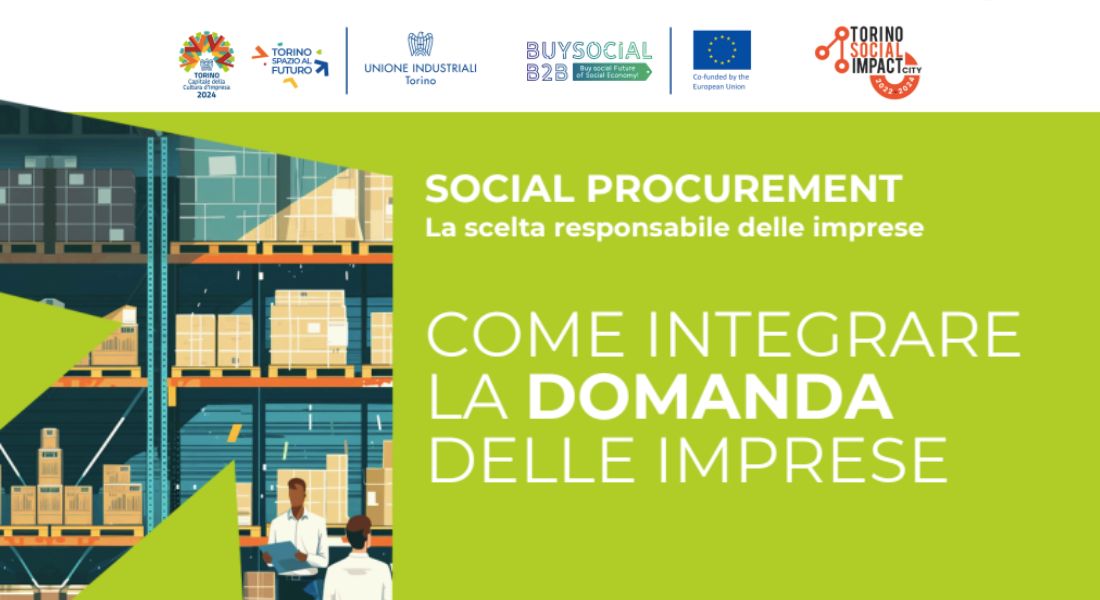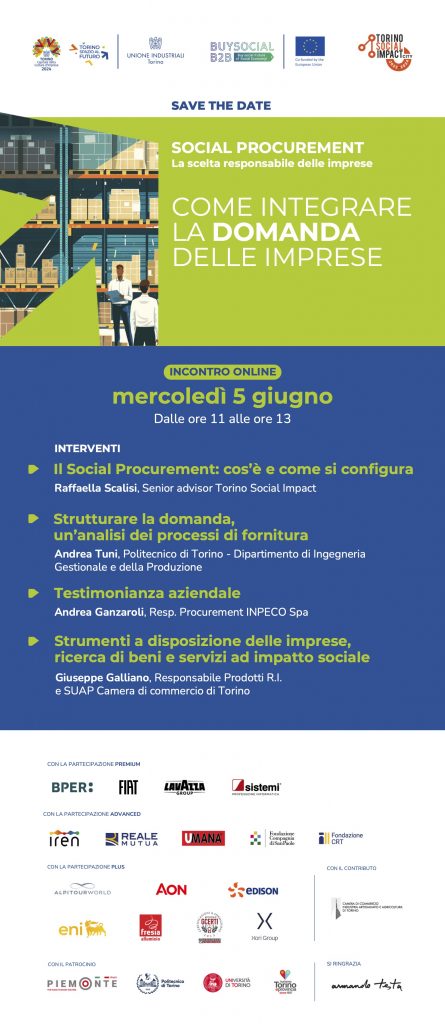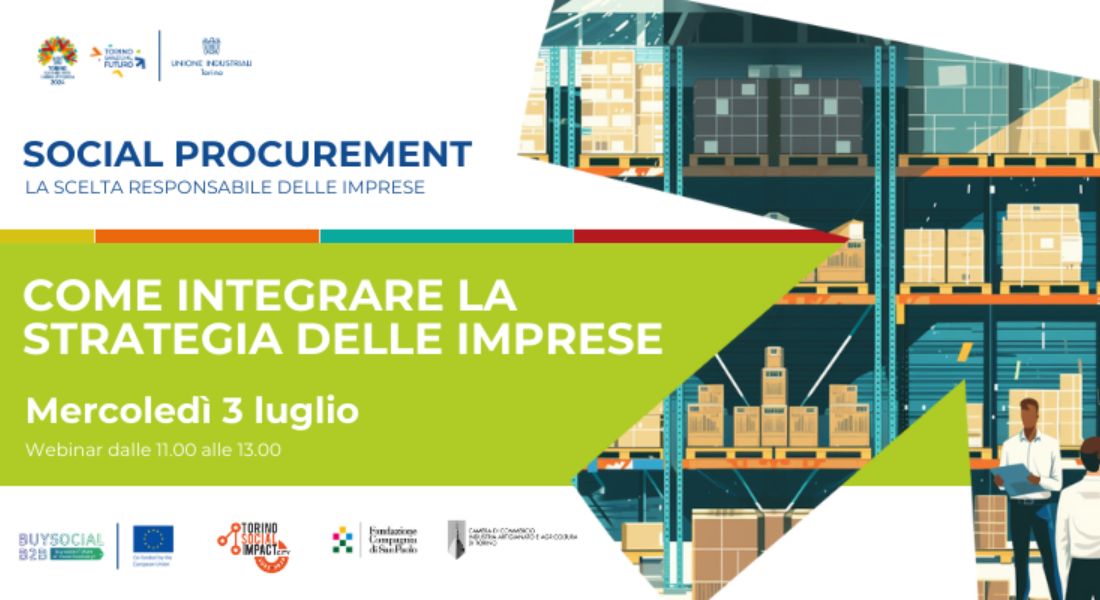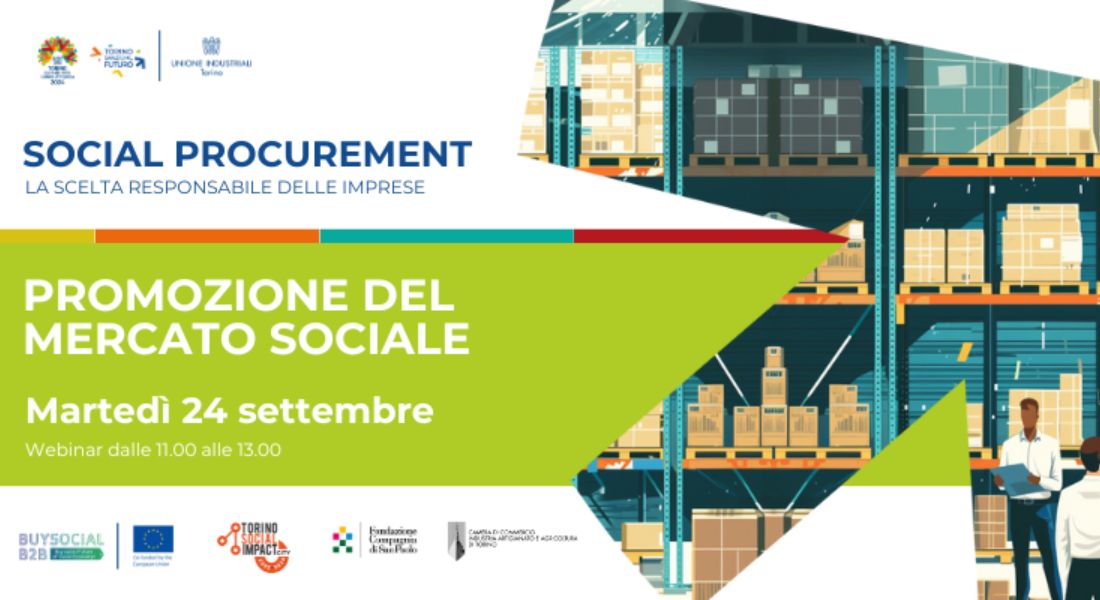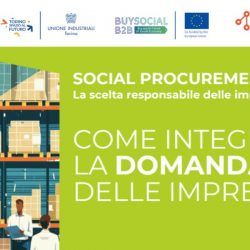There are more and more companies applying supplier selection criteria for goods and services that not only evaluate the economic and qualitative offer of the product but also consider aspects related to their environmental impact.
But what if the selection was also based on criteria for evaluating social impact?
What if companies, in selecting suppliers of goods and services, started with those that can also generate a positive impact on the community in which they operate?
A series of online meetings has been created from the collaboration between the Turin Chamber of Commerce, Turin Social Impact, the Turin Industrial Union, and the Compagnia di San Paolo Foundation to delve into the topic of social procurement, for a responsible choice by companies.
The meetings aim to explore the main aspects of this business strategy by examining both the elements of greatest interest for business development (supply side) and the main opportunities for entering a market (demand side) that, in addition to meeting the needs of companies, generates positive impacts on the territory.
The Turin Chamber of Commerce, which has been active for years in supporting local companies towards greater awareness and social responsibility, also through the Torino Social Impact project platform, has enthusiastically embraced this shared proposal.
The series of online meetings begins on Wednesday, June 5, from 11 AM to 1 PM: thanks to the contributions of Torino Social Impact, the Polytechnic University of Turin, and the testimony of a local company, it will be possible to discover the opportunities that this responsible business practice offers and what tools are available to entrepreneurs to seize them. The series continues on July 3 and concludes on September 24, always from 11 AM to 1 PM.
Registration is free upon signing up at this link, available through the Turin Industrial Union: SIGN UP
The event is part of the Turin Capital of Business Culture 2024 calendar.
The activity is part of BUYSOCIAL, an European project that aims to strengthen partnerships between social enterprises and traditional businesses to improve the market for social enterprise products and services.


